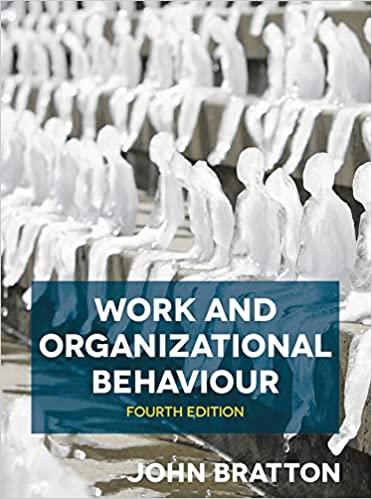2. Several chief executives of British banks have justified giving exceptionally high bonuses and share allowances in
Question:
2. Several chief executives of British banks have justified giving exceptionally high bonuses and share allowances in order to recruit and retain the best staff. Imagine that you occupy a highly rewarded position in a bank in London. The unemployed and the bankers, who occupy the lowest and highest extremes in terms of income, have one thing in common: their income has been capped. In 2013, the British government introduced a range of caps to the total of benefits and tax credits that limited the maximum to £500 (€560) for a couple or a lone parent and £350 (€392) for a single adult. The policy was intended to (1) produce savings for the government; (2) ‘promote fairness by ensuring that workless households cannot receive more in benefit payments than the median average income of a working household’ (House of Commons, 2013, p. 1); and (3) encourage people into at least 16 hours of employment per week.
The European Parliament has limited bankers’ bonuses since 2015 to 100% of their salaries, which can only be increased to 200% with shareholder approval. This will reduce the income of bankers whose bonuses have far exceeded their salaries. For example, in 2013 Barclays paid more than £1 million in bonuses to 428 of its bankers. The banks have opposed the European Union directive limiting bonuses and defend high compensation in order to retain staff and to compete in global markets for talent
Step by Step Answer:







